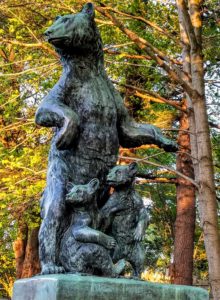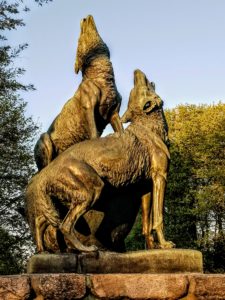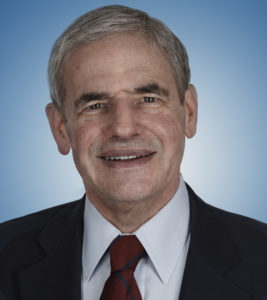“As a bird that wandereth from her nest, so is a man that wandereth from his place.”
— Proverbs 27:8
Shortly after I put the house on the market, I had a dream.
I was with my parents. My father was driving us up Route 20, snaking northwest along the Westfield River toward the Berkshire Mountains of Massachusetts. We were going to Becket, a trip our family had made countless times.
After my father passed away, I drove my mother on the trips to the Berkshires. The last time we made the trip, in the fall of 2011, she said she considered the route the most beautiful she knew.
Dreams do not declare meaning, but they offer meaning. I understood the dream as a warning, a warning of my mortality. It meant I would join my parents, taking the final voyage they had taken.
Later I came to a different understanding of the dream. It was a reminder of mortality, but mainly an expression of my longing for home. I missed the land where my family had lived, the familiar land, the land of memories.
My final voyage would come, but I still had time, time to live, time left back home.
……..
The journey home took two days.
We stayed one night in Carlisle, Pennsylvania, at the halfway point. In the morning, the cats decided they would remain under the bed in the hotel room rather than complete the trip. I overruled their plan. Three members of the staff kindly helped me remove the mattresses from the bed so I could get hold of the cats and put them in their carriers.
We stayed at a hotel in Connecticut for four nights pending the delivery of our belongings to the apartment in Bethel and a storage facility.
I chatted with a woman who cleaned our room and learned she was an immigrant from Honduras. She now has children and grandchildren in the area. The next day, she made sure she was assigned our room. She said, “You were so nice to me.” I hope she meets many more people who respect her dedication and appreciate her being here.
I am fond of immigrants. They have wandered in search of better lives. I welcome them.
The movers, Student Services Moving and Storage Company of Charlottesville, did an excellent job. We were home. Two days later, we had a quiet Thanksgiving.
……..
Unless you have been through a violent crime, you cannot know what it is like. However bad you imagine it is, it is worse.
The crime had consumed me for several months. Leaving the area and getting back home was a relief.
But a crime is not a chapter you leave behind. It is always with you, though time diminishes its weight.
You do not let it ruin your life. You do not let it define you. It is only one event in your life, but it changes you.
The crime is never over. You carry on, different — and undeterred.
……..
A Little Biographical Background
I was born in Schenectady, New York. In the 1950s, my father directed YMCA Camp Chingachgook on Lake George in the Adirondack Mountains. We then moved to Oklahoma, where he led YMCA Camp Classen in the Arbuckle Mountains.
After three years, our family moved back east in 1962. My father directed YMCA Camp Becket, a boys camp in Becket, Massachusetts, in the western part of the state. My father’s office was in Boston, and my mother directed a nursery school in Framingham, the suburb where we lived.
Our family spent summers and many weekends at the camp. My father hired staff and drew campers from all over the country and overseas. I was fortunate to be exposed to the broader world from a young age.
When the YMCA purchased neighboring Chimney Corners, a camp for girls, in 1972, my mother became the director, and my father became the executive director of the overall operation. The camps were internationally renowned, and they remain so today. My parents retired to Cape Cod in 1989.
Perhaps I am more tied to the land than some people because of the years with the camps.
When I was away, I missed the stone walls, fields, farms, and orchards; the rivers, streams, swamps, waterfalls, and coast; the red-winged blackbirds, red-tailed hawks, owls, ravens, crows, woodpeckers, blue jays, mourning doves, and ducks; the beavers, bears, foxes, coyotes, and bats; the turtles, frogs, and snakes; and the charming small towns, architecture, museums, and sculptures.
I have lived in southern Connecticut off and on since 2001. I now consider the state my home. I like the proximity to friends and the access to Becket, Chimney Corners, and Chingachgook. I also enjoy attending the programs offered by nature and wildlife organizations in the area and Atlas Network’s events in New York City related to international liberty.
Things Large and Small
Being home, being alive, I have taken pleasure in things large and small.
In December, I attended the Wolf Conservation Center’s holiday party in Westchester County, New York. It was wonderful to see the staff and chat with friends. Ambassador wolf Atka, an Arctic gray wolf, made his usual appearance.
I also attended a presentation by an evolutionary paleontologist at the Connecticut Audubon Society’s facility in Fairfield, “Fossils as a Birdwatcher’s Time Machine.” I have always been fascinated by evolution; I still have the fossils I collected as a child in Oklahoma.
Later that month, I enjoyed another holiday party at the home of friends in Putnam County, New York. I have had lunch with these friends several times since then. They share my love of animals and have a menagerie of adopted creatures.
I also had dinner at the home of old friends in Redding, Connecticut. They too love animals; they have cats and a sweet rescue dog from the South. As in the past, the model train layout in their living room, surrounding their Christmas tree, reminded me of the Christmases of my childhood.
It was good too to see my friends at Georgetown Veterinary Hospital, also in Redding. The hospital has taken care of my various cats for many years, and, as I mentioned in Part I, it cared for Victoria and Eve as kittens before I adopted them.
I shared the story of the crime with the friends. They have been kind and supportive.
Action After Survival
Survival can be an achievement. But for many of us, survival alone is not enough.
I have continued working on my missions as an advocate for international liberty and international animal welfare. The basis for both pursuits is compassion.
I sow seeds. Some may bear fruit over the years, decades, and centuries to come. I regard sowing — the sharing of ideas — to be its own virtue, whatever the future may bring.
I also wanted specifically to respond to the crime. One thing I have done, as I mentioned in Part III, is to help people make their homes safer.
I also have written this article. My goal is to help heighten people’s awareness of the risk of crime; help those who have experienced trauma and those who wish to be supportive of them; offer ideas for those who want to make their homes safer; and discuss my thoughts on the criminal justice system and the need for change.
Finally, in my regular commentary on social media, I have been discussing the problem of crime. One area I have focused on is the common failure of the system to incarcerate or otherwise control violent criminals, leaving them on the street to prey on others.
The failure puts us all at risk. And it specifically enabled the crime against me to occur. As we shall see, the crime did not have to happen.
My Longstanding Concern with Crime
I have long been interested in reducing crime.
In my first year of law school, in Boston, I witnessed an attack on the subway. The perpetrator displayed a knife and then hit a passenger. I got off at the next stop, reported the crime at the service booth, and continued to Park Street station, a major intersection where I hoped the suspect might have gotten off. There, I saw the MBTA police officers who had been alerted and helped them find the suspect. They arrested the man, and I later testified in court.
In law school, I participated in the clinical program in prosecution. A highlight occurred when the man whose traffic case I was handling alerted me that he had been the victim of a crime by a spectator sitting in the courtroom. He knew there was an outstanding arrest warrant from another jurisdiction in the state. I informed an assistant district attorney, who contacted the police. They arrested the man, and we dropped the traffic charge.
Years later, when I lived in an apartment complex in downtown Boston, a neighbor and I chased a man who had snatched a woman’s necklace. The suspect got away from us by climbing over a tall metal fence, but the police had arrived by then, and they arrested him.
As I mentioned in Part II, in my work as a private attorney and regulator, fighting investment fraud and abuse, I regularly made referrals to law enforcement, particularly the FBI. Also, when I served as Chief Counsel for the New York Region of NASD, now known as FINRA, I led the White Collar Crime Roundtable meetings, with broad participation from state and federal offices.
State Victim Compensation
I spent a lot of time preparing a claim with the Virginia Criminal Injuries Compensation Fund, carefully documenting expenses, and submitting the application in January. The state government program allows victims of violent crimes to seek reimbursement for specific categories of expenses. The website explains that the program “is funded by fines and fees collected from offenders.”
I found the process frustrating; it needs an overhaul. The fund eventually sent me a check for a fraction of my expenses, with no explanation of the decision.
U.S. Attorney’s Office
The Assistant U.S. Attorneys and the Victim/Witness Specialist maintained regular communication with me. They were always courteous, respectful, and professional.
The 2004 Crime Victims’ Rights Act provides that victims have, among other rights, the right to be heard at certain proceedings, to confer with the attorney representing the government, and to be informed of any plea bargain. Specialists assist victims and witnesses, and the Department of Justice operates an automated Victim Notification System.
The website of the U.S. Attorney’s office describes the role of the specialists and lists the rights of victims defined in the Act.
In March, I completed and submitted the Victim Impact Statement, which “allows [victims] to write about the physical, emotional, and financial effects of [a] crime, as well as any other changes in [their lives], [they] may have experienced.” Prosecutors review the statements and probation officers use the information in completing presentence reports for judges.
Guilty Pleas
The three defendants in the crimes involving me pleaded guilty, after accepting plea agreements, in, respectively, January, February, and March.
Jones
Jones pleaded guilty to two firearm charges and admitted participating in the crimes involving me plus three of the prior robberies in the spree. The article includes a video from one of the earlier robberies and a copy of the media release from the U.S. Attorney’s Office.
“DOJ: First of 6 Pleads Guilty in Series of Robberies, Kidnappings”
Tyree
Tyree pleaded guilty to two firearms charges and admitted participating in the crimes involving me plus four of the prior robberies. The article includes a copy of the media release from the U.S. Attorney’s Office.
“2nd Defendant Pleads Guilty in Connection to Series of Armed Robberies”
Johnson
Johnson pleaded guilty to firearms and carjacking charges.
The first article, which includes a video, announces Johnson’s pending guilty plea. The second one discusses the plea.
“Guilty plea expected in string of Central Virginia armed robberies”
“Last defendant of six in robbery cases pleads guilty”
Other Three Defendants
As reflected by the last article linked above, between December 2016 and March 2017, the other three defendants in the spree also accepted plea agreements and pleaded guilty.
Sentencing Hearings
Since the defendants had pleaded guilty, there was no need for a trial and no need for further testimony. However, I had promised the U.S. Attorney’s office, on the day of my grand jury testimony, that I would, as requested, speak at the sentencing hearings. While I had submitted a written statement, the appearance of a victim in court personalizes the impact of a crime. And I wanted to be heard.
Some friends assumed I dreaded going to court. To the contrary, I looked forward to it. The hearings were repeatedly rescheduled, through no one’s fault. I understood, but psychologically preparing for each scheduled appearance kept my memory of the crime raw.
The Assistant U.S. Attorneys ultimately arranged with the court to have all three of the hearings on one day, Tuesday, July 25th. Further, all three defendants would be assembled for my presentation so that I would only have to deliver it once. I appreciated the AUSAs’ thoughtfulness and the court’s accommodation. Part VI covers the trip back to Charlottesville and the hearings.
Meanwhile
Meanwhile, through the winter and spring, I attended monthly events with Atlas Network in New York, e.g., on India and Sweden, and regular local programs on nature and wildlife. The latter included presentations at Wolf Conservation Center on coyotes and red wolves and one on black bears at New Pond Farm Education Center.
In March, I enjoyed an event that raised funds for painted dogs, also known as African wild dogs. I had some familiarity with the critically endangered species but fell in love with the animals through Gregory Rasmussen’s presentation.
To learn about the species, see the websites of Painted Dog Research Trust and of artist Alison Nicholls, who organized the event. See, too, the video “Painted Dogs in Zimbabwe fighting back survival thanks to PDC.”
I also attended New Pond Farm’s art show preview party in June. The show featured “the paintings, drawings, and sculptures by the region’s finest artists depicting the flora and fauna of New Pond Farm and our surrounding countryside.” The party and show raise funds for the farm; the wide attendance at the party and the extensive participation of artists are a testament to the fondness of people in the community for the organization.
It was a pleasure to view the art and see old friends. These included, again, friends from Georgetown Veterinary Hospital. I expressed my appreciation to them for all of the kindness they have shown my cats and me over the years. I also let them know that Victoria and Eve have been a blessing.
A few days later, I happened to visit the hospital’s website. The kittens in the banner looked familiar. I realized the photo was of Victoria and Eve back in 2014, before I adopted them. Other cats will have their day; what a joy that mine have been honored! Here is a screenshot:
I took regular hikes through Huntington State Park in Redding and the adjacent Couch Hill Preserve.
The preserve serves as a conservation area for bobolinks, as discussed in a local article published in 2016, “Rare bobolink birds make Couch Hill Preserve an Audubon site”:
Every spring, endangered songbirds, the spectacular Bobolink, migrate over 6,000 miles from the pampas of Argentina, Bolivia and Brazil to the grassy fields of Couch Hill.
In early May, the male Bobolinks arrive and start their territorial aerial displays, using fluttery wingbeats and warbling songs. Several males will often engage in display flights at the same time.
I enjoyed seeing the bobolinks flying above the fields, singing their songs. To learn more about the species and hear their sounds, see Cornell Lab of Ornithology’s guide to the birds.
Coach Training
Between April and July, I spent five three-day weekends in Boston, a city where I lived for much of my life, taking courses through The Coaches Training Institute (CTI), “the largest in-person coach training school in the world.” I have four decades of experience coaching, mentoring, and counseling people; I wanted to learn more and enhance my skills.
I missed the cats, but the sitter took great care of them and sent me photos of them by text messages. CTI held the last three programs at Hyatt Regency Boston Harbor. At night, I strolled the walkway along the water.
The program was valuable, and I made new friends — smart people with good hearts who will help their clients live successful and fulfilling lives. I told a few of the folk in my cohort about the crime and the fact that I would be returning to Charlottesville to speak in court; they too were kind and supportive.
……..








